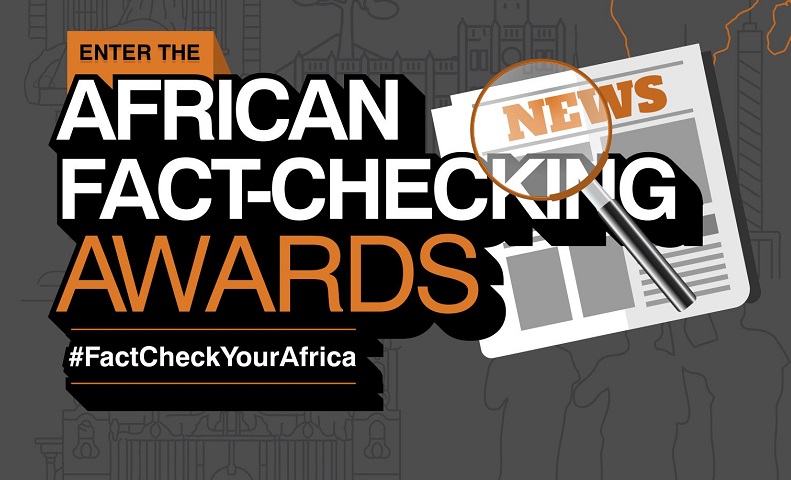Deadline: August 1, 2021
Applications are open for the African Fact-Checking Awards 2021. The African Fact-Checking Awards is the longest-running awards program that honours fact-checking journalism by the media in Africa.
“Through the awards, we want to promote the practice of fact-checking and making accurate information available to citizens of all countries across Africa, which is now more important than ever,” says Noko Makgato, Executive Director at Africa Check.
The categories include:
- Fact-Check of the Year by a Working Journalist
- Fact-Check of the Year by a Student Journalist
- One runner-up in each of the two categories above
Awards
- The winner of the working journalist category will get a prize of US$3,000, while the runner-up will be awarded $1,500.
- The winner of the student journalist category will get a prize of $2,000, and the runner-up $1,000.
Eligibility
- Open to journalists and journalism students in Africa.
- To qualify, the entry must be an original piece of fact-checking journalism first published or broadcast on any date from August 23, 2020 to July 31, 2021, by a media- or independent fact-checking organisation based in Africa.
- The work may be published in print or online, broadcast on the radio or television or published in a blog.
- In the student category, the entry must be an original piece of fact-checking journalism first published or broadcast in a blog, student publication or by a media- or independent fact-checking organisation based in Africa.
- Entries should expose a claim on an important topic that originated in or is relevant to Africa as misleading or wrong.
Seletion riteria
Entries will be judged based on the following criteria:
- Significance: The significance for wider society of the claim/statement investigated. How much does the topic matter to society at large and how serious could the consequences be if the claim wasn’t fact-checked?
- Testing: How was the claim tested against the available evidence? Fact-checkers must take a long, hard look at the claim/statement that was made. Fact-checking entails rigorously sifting through the publicly available evidence for and against the claim. This should be done in a way that is fair to the person or institution who made the claim and strict in assessing the evidence.
- Presentation: How well does the piece present the evidence for and against the claim? A good fact-checking report is structured in such a way that it’s understandable and makes the topic accessible to the widest possible public.
- Impact: The impact that the fact-check had on public debate on the topic. Did it lead to a correction, did it have significant reach, or was it shared by other organisations or members of the media, for instance?
Application
Make sure to complete all the relevant fields for the category that you are entering in order to be considered for the awards. Entries close at midnight GMT on August 1, 2021.
For more information, visit African Fact-Checking Awards.

